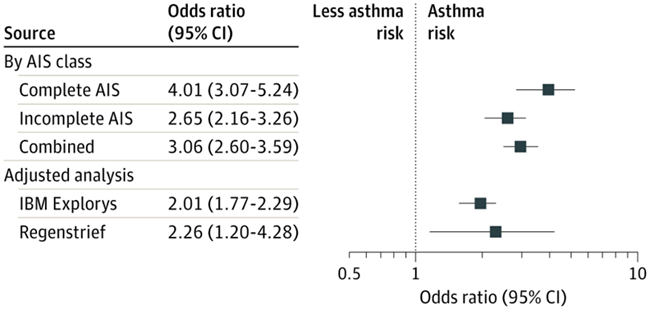 Asthma is a sexually dimorphic disease, with women exhibiting higher asthma prevalence and more severe manifestations than men. Project 3 builds upon the rationale that androgens such as testosterone and dehydroepiandrosterone (DHEA) have been linked to better outcomes in asthma. However, mechanisms of androgen-mediated regulation of airway biology are only incompletely understood. In addition, it is unclear if androgen therapy is beneficial in severe asthma and if specific patient populations exist that could be targeted via a precision medicine approach. Project 3 aims to fill this knowledge gap and identify novel, therapeutically targetable mechanisms of androgen-mediated improvement in lung function. Ultimately, this will lead to novel, targeted and corticosteroid-sparing therapies for patients with severe asthma of either sex.
Asthma is a sexually dimorphic disease, with women exhibiting higher asthma prevalence and more severe manifestations than men. Project 3 builds upon the rationale that androgens such as testosterone and dehydroepiandrosterone (DHEA) have been linked to better outcomes in asthma. However, mechanisms of androgen-mediated regulation of airway biology are only incompletely understood. In addition, it is unclear if androgen therapy is beneficial in severe asthma and if specific patient populations exist that could be targeted via a precision medicine approach. Project 3 aims to fill this knowledge gap and identify novel, therapeutically targetable mechanisms of androgen-mediated improvement in lung function. Ultimately, this will lead to novel, targeted and corticosteroid-sparing therapies for patients with severe asthma of either sex.
We have generated intriguing new data suggesting a causal relationship between androgens and relief of human asthmatic airflow obstruction. In particular, we found that in women with mild asthma and low DHEA-sulfate plasma levels, DHEA treatment was associated with a significant improvement in FEV1. Second, we discovered in a cohort of severe asthma patients that a variant in position 1245 of the gene HSD3B1 (encoding an enzyme that increases tissue androgen levels) is associated with a lower FEV1 if DHEA-S plasma levels are low. Third, we found that increased androgen receptor mRNA abundance in airway epithelial cells (AECs) is associated with improved lung function and fewer asthma symptoms. These data led us to hypothesize that androgens exert beneficial effects on S-nitrosylation, pH regulation and inflammatory signaling that lead to improved lung function in patients with severe asthma, and that genetic variations in androgen signaling are clinically relevant modifiers of the therapeutic response in these patients.
We propose the following specific aims: 1) To determine whether androgens favorably impact S-nitrosylation and pH regulation in brushed AECs from patients with severe asthma; 2) To study if androgens regulate pro-inflammatory mediator gene and protein expression in AECs from patients with severe asthma; and 3) To investigate if DHEA improves FEV1 and decreases FeNO in asthma patients with low DHEA-S levels and a favorable HSD3B1 genotype. The proposed studies are significant, since they will provide a better understanding of the yet unknown mechanisms and targets of androgen signaling in severe asthma. Conceptual innovation is provided at several levels: First, we will identify novel mechanisms of androgen signaling in AECs in severe asthma and establish a critical crosstalk with nitrosylation/de-nitrosylation, pH regulation and inflammation. Second, we will identify sex and androgens as modifiers of AEC-ASMC crosstalk. Third, we will perform the first mechanistic studies of the role of HSD3B1 in severe asthma.
Upon conclusion of our studies, we will have identified novel and therapeutically targetable mechanisms of androgen signaling in AECs and ASMCs in severe asthma, and we will have identified a novel population of male and female patients that will benefit from a personalized and targeted hormone-based treatment approach.